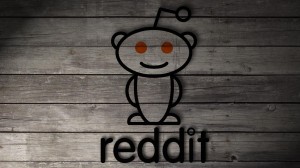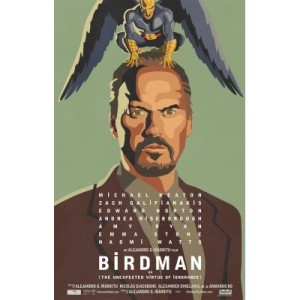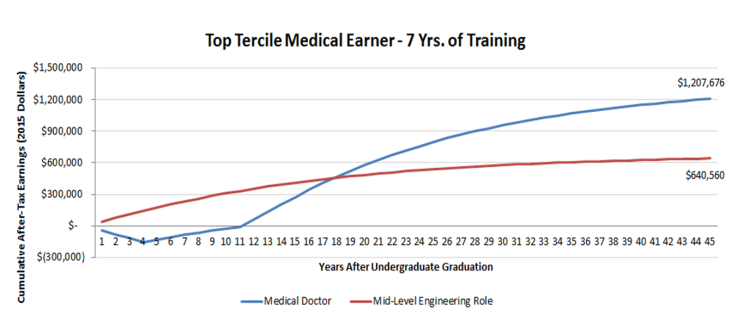
I swear I am not trying to be the“TV guy,” with Conformist Uprising. That said, I love TV, hate missed opportunities, love pointing things out, and hate Bill Maher. Sorry, that last one might have been more than a “preview,” but for now let’s call it a topic sentence.
One quick aside for all you business nerds – before you send letters, yes, I know this piece will not live up to being be an actual SWOT (Strength Weakness Opportunity Threat) analysis of the TV pundits but just a strength/weakness piece. That “SWOT” headline was more “clickbait” to get all the consultant readers out there riled up about Conformist Uprising using outdated business frameworks (what’s next Porter’s Five Forces?!). Just saying, I would make a great Huff-Po headline writer for the business section. One freebie on that front: “McKinsey Hates This Housewife for Revealing This One Little Trick To Get Your WACC Under 15%...”. Anyway, onto my thoughts on today’s liberal TV pundits.
Jon Stewart:
Greatest Strength – Subject knowledge, willingness to “go there.”
Perhaps unfortunately (for media as a whole), Stewart is likely the best “prepared” interviewer on television today, primarily stemming from his strong perspective as well as depth of knowledge in the areas he focuses on (i.e., social inequity, government policy, media studies). Watch the Jim Cramer interview as an example. Just awesome. I do not want to be in the hot-seat when Stewart decides to “turn off the funny.” Just ask Cross-Fire.
Greatest Weakness –Not owning his influence.
Less a weakness, and more an annoyance as an observer, is that Stewart refuses to “own” his status as “shaper of public perception.” He cannot have his cake and eat it too. He cannot insert his own personal politics into the Daily Show for the purposes of shaping public opinion and effecting social change (e.g., pushing for the 9-11 Relief Workers’ Bill) to the extent he does, and then say “I’m just a comedian” with the defensiveness that he does. In my mind’s eye he has a large picture of Urkel above his bed with the caption “Did I do that?” underlined vigorously. Own it Jon.
Stephen Colbert (RIP).
Greatest Strength -The Pundit Persona.
Cobert just left us, and I would rather not speak ill of the dead. Luckily there isn’t much bad to say because I looooove Stephen Colbert. If I were a middle-school girl, my notebook would be 110 ruled pages of me practicing my future signature, “Mrs. Aman Colbert” in cursive. Colbert’s comedic delivery may be the best amongst the bunch, but my favorite moments are when his required “persona” leads to the inevitable lapse-of-character, breaking-of-the-fourth-wall which is a delicious peek behind the mask. I challenge you to watch this video from 2:15-3:45 and not lose it. Sorry, I know that sounds like another piece of clickbait but this one’s worth it.
Greatest Weakness- The Pundit Persona
Ah the double-edged-sword trick. Due to the persona, Colbert can never “nail” a subject without at least a hint of comedic levity, which while funny, gives an “out” for any interviewee. That said, his “improv” is ridiculous – if guests play along- you get comedy gold out of the most boring subjects. I give you Colbert vs. American’s Chicken Council spokesman Richard Lobb.
Bill Maher
Greatest Strength- (potentially) HBO’s Format
Through HBO, Maher has the best format for satire, interviews, and comedy available. Since he does not have to please affiliates, advertisers, or budget-conscious network execs he can do and say (basically) whatever he wants and has 60 uninterrupted minutes (~3x Colbert/Stewart’s airtime) with which to delve into comedic “no fly zones” and/or grill interviewees. As far as formats go, this is paradise. Why then isn’t Real Time the most incisive political commentary on television? That leads to the small matter of…
Greatest Weakness- Bill Maher
Specifically, Bill Maher is the anti-Jon Stewart. He freely inserts his personal perspective into the show, the problem is he just cannot consistently support it. When backed into an intellectual “corner” (I have put quotes here because his format is often him +2 liberals + 1 pseudo conservative + a rabidly pro-Maher audience), he simply has a “I am the host” tantrum and changes the subject or throws a withering non sequitar at his panel. Something along the lines of:
Pseudo-Conservative: Bill, I TOTALLY AGREE with you that a public debate is required on the issue of torture, an issue which started with Bush, but to be fair, President Obama has upped the ante with drone attacks, some of which have even targeted US-citizens.
Bill Maher: Oh what was that? I couldn’t hear it over the sound of Bush burning ballots in Dade-County, Cheney shooting buck-shot into his friend’s face, and Joel-Osteen speaking in tongues. Am I right Liberal #1 and Liberal #2? [Bill Maher high-fiving fellow liberal panelists]
Pseudo Conservative: Bill…I…err…, I don’t really know what that has to do with anything, I am just saying… [drowned out by chants of “RED RUM, RED RUM” from audience members]
Perhaps not quite that dramatic but the type of thing that happens at 4:15-4:45 in this exchange with Glen Greenwald (not exactly a conservative)regarding Benghazi is what makes me hate Bill Maher so much. What a wasted opportunity. I was hoping John Oliver would fill the void, but alas, he has not. But that is for another post.
P.S. Okay, I might be the “TV guy.”












